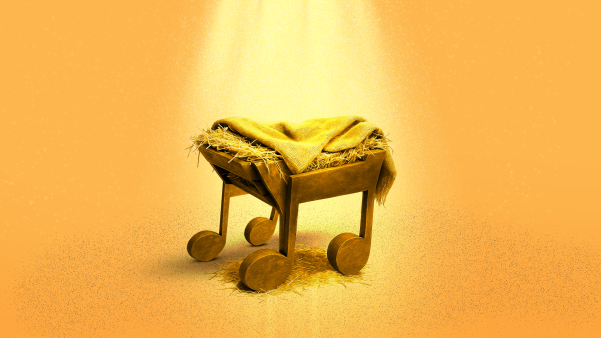I knew that Karl Barth, arguably the greatest Protestant theologian of the 20th century, had a decades-long affair with his personal assistant, Charlotte von Kirschbaum. But I didn’t know some of the details. As the saying goes, the devil is in the details, and the details were deeply disappointing.
As the author of the recently released Karl Barth: A Biography for Evangelicals, I was anxious to read the latest revelations about the relationship. I had briefly discussed it in the book, noting the pain it caused his wife, Nelly, especially when Barth not only admitted to his wife his love for Charlotte but also insisted that Charlotte move into the family home to help him with his workload. Based on the work of Barth scholar George Hunsinger, I tried to set the relationship in the context: A younger Barth had fallen in love with a woman his father forbade him from marrying; his marriage to Nelly was in some sense arranged. So Barth was an emotionally lonely man. But I concluded that even if it was merely emotional adultery:
Husbands of much lesser stature have recognized that when such a relationship sabotages the very integrity of one’s marriage and becomes a burden to the family, it may suggest a duty to sacrifice one’s desires for the sake of one’s vows.
Then I read “Karl Barth and Charlotte von Kirschbaum” by Christiane Tietz in Theology Today, which discusses recently released personal letters Barth wrote to von Kirschbaum from 1925–1935. I was stunned. It wasn’t merely that Barth had committed adultery or that a great theologian was shown to be not so great in his personal life. As church history shows time and again, sin is no respecter of persons, no matter how great.
No, it was the details. I had not thought all that deeply about the relationship; I had read much speculation, but I didn’t have access to much solid information. This dimension of Barth was more or less abstract to me. What floored me now was especially the rationale Barth used to justify the relationship.
Any of us who have looked up to a Christian teacher only to find out afresh how flawed they are will probably understand my reaction. What are we to make of everything they taught if their lives exhibited anything but what they taught?
The Problem with Barth
Let me explain a little more deeply why the revelations about Barth are such a problem. Because it’s not a matter of him being confirmed as a sinner. That would not suggest the depth of the problem.
One of the major points of my book was that Barth can help us ground our theology in the revelation of Jesus Christ as revealed in Scripture—and not in our subjective experience. That was a problem with the 19th-century liberalism Barth reacted against. It was that subjectivism that defined religions as “the feeling of dependence” and which got swept up in a patriotism that equated that euphoria with the will of God. This is what prompted liberal theologians—many of whom had taught Barth—to support the German war effort in World War I. This so rattled Barth, he was compelled to rethink theology from the ground up (or better, from the revelation of God down).
But it is that very subjectivism that Barth fell into himself, more or less saying that his relationship with von Kirschbaum felt so good, so right, it had to come from God: “It cannot just be the devil’s work,” he wrote Charlotte. “It must have some meaning and a right to live. … I love you and do not see any chance to stop this.’’
Then he employs his theological method to justify the affair. Rather than a strict logic that moves from point A to point B and then a conclusion, Barth believed deeper truth always stood in a dialectic. One example: Jesus is God and man. Another: God is both judge and savior. These truths are not easily reconciled but are better understood as existing in some tension. Barth used this method fruitfully to explore many mysteries of the Christian faith.
But when it came to his personal life, we see the limits of this method. Tietz summarizes how Barth understood things:
Barth interprets his own situation theologically as standing in tension between ‘‘order’’ and that which ‘‘has come upon us unintentionally out of the mysterious guilty depth of the human,’’ between ‘‘the holiness of the command,’’ and ‘‘that you [Charlotte] and I (I don’t know on which level) are together between the right and the ‘natural event.’”
In other words, he’s saying that he and Charlotte had no choice but to live in this dialectical tension between obeying God’s command about marital fidelity and what felt right to them. I would have liked to have seen the face of his wife, Nelly, when he explained that to her. Parents who hear a child argue, “I know I’m not supposed to steal, but it felt right to take that candy bar from my brother,” rightly send him to his room after explaining that it didn’t matter how he felt. We’re not talking about dialectical tension as much as simple disobedience to God’s gracious command.
Again, my concern is not simply that Barth was a sinner and that his sin was an extramarital affair. Many fine people do stupid things in life. It’s that he justified the affair on the very grounds that substantially contradict his theological project as well as his theological method. And did so year after year after year. What was I to make of his theology now? And could I in good conscience continue to recommend Barth to others if he himself could not follow his own theological path?
Three Almost Obvious Observations
After pondering these questions and discussing them with good friends, I remembered again how utterly common and predictable this whole business is.
First, few pastors and theologians are actually able to live up to their loftiest ideas. In fact, most will acknowledge that the very subjects that most invigorate them are the very ones that make them feel the most vulnerable. If a pastor is spending a lot of sermon time on the evils of gambling, you might bet that he’s likely tempted by gambling himself. When the public hears that a pastor, known for his campaign against pornography, is discovered with terabytes of pornography on his computer, most respond by saying, “What a hypocrite.” Not necessarily: It is likely that this pastor was desperate to do anything to bring his pornography addiction under control; his sermons were directed at himself as much as to his flock.
Barth left very little writing about his inward temptations, but I speculate, with some reason now, that he himself was perhaps sorely tempted by his own emotions, letting them dictate how he understood God’s will. That he fought this battle unsuccessfully in one area doesn’t mean his project was a failure. It just means that allowing the revelation of Christ, rather than our whims and small desires, shape our lives is an enormous challenge. It makes Barth’s theology—which focuses on Jesus Christ first and our religious experience second—all that much more important to ponder.
Second, it is only natural that theologians will use their theological method to justify their illicit behavior. All of us use any logic available to justify our sins. Self-justification is so woven into the fabric of our souls, it’s a lifetime effort to root it out. In fact, we can be sure that we will never rid ourselves of it completely. Which is one reason we have friends and spouses. It’s my wife more than anyone else who has exposed my pitiful attempts to justify my faults.
This contradiction can be found in many of our heroes. I wrote a biography of Francis of Assisi some years ago, and one of my startling discoveries was that the “saint” known for humility was a man who battled with, and often lost, to arrogance. He was often boastfully proud of his sacrifices for Jesus!
Likewise, Bernard of Clairvaux has left us with one of the most beautiful treatises in the history of spirituality: On Loving God. He was also one of the most effective preachers of the Second Crusade, with vicious calls to kill Muslims.
The issue is not just theological but philosophical as well. Take Thomas Jefferson, the man who penned in the Declaration of Independence what are perhaps the most famous lines about human liberty: “We hold these truths to be self-evident: that all men are created equal; that they are endowed by their Creator with certain unalienable rights; that among these are life, liberty, and the pursuit of happiness.” And yet Jefferson not only owned slaves but carried on a long sexual relationship with one of his slaves, Sally Hemings—one that cannot be considered a matter of mutual consent.
Good Shines in the Darkness
In light of these profound contradictions, what are we to do with the messages of each of these men? Does their behavior tarnish their ideas? Should we consider the glorious statues we have erected of them in our minds and tear them down, never to look upon them again?
I don’t think so. In fact, it’s their very weaknesses that accent the need for us to steep ourselves ever more deeply in their ideas.
Did Jefferson exploit a certain class of human beings? Certainly. But it’s the grandeur of his ideas about human dignity and freedom that indict him so fiercely. The contradiction shows forth the glory of his ideas—how absolutely necessary they are.
Is humility to be forsworn as a hopeless gesture because even the most humble wrestle with—and often lose to—its opposite? No. But the ideal of humility demonstrates how base and demeaning human arrogance is.
I am a firm believer that good theology can be an immense help in leading a godly life. But there is a reason the Lord also gave us prayer and fellowship, Scripture and worship, among a host of other gifts: to help us grow up into the full stature of Christ. To paraphrase our Lord, some sins theology cannot exorcise but come out only by prayer and fasting.
As the reader can tell, I still recommend Barth’s theology, but as I said in my book, it’s not because he had the right answer to every theological question. He must be read critically, as we read any great thinker, probing whether his thought is consistent with the teaching of Scripture. And as I said in my book, Barth is probably most helpful not because of the answers he gives, but because he—more than most theologians—prods one to think theologically and, especially, biblically. He never sought to raise up a school of Barthians but instead a school of thoughtful Christians grounded in the Word of God.
That being said, I admit to remaining saddened to hear the details of Barth’s affair. One may forgive, but one never forgets the occasion of being let down by someone you admire. Like many, I’ve long hoped to find a heroic human figure whom I can admire unflinchingly. But time and again, I’ve had to discover there is no such person.
Well, except the one known as the True Man, who dialectically enough has been known to use ignoble things to shine forth his glory.
Mark Galli is editor in chief of Christianity Today.








